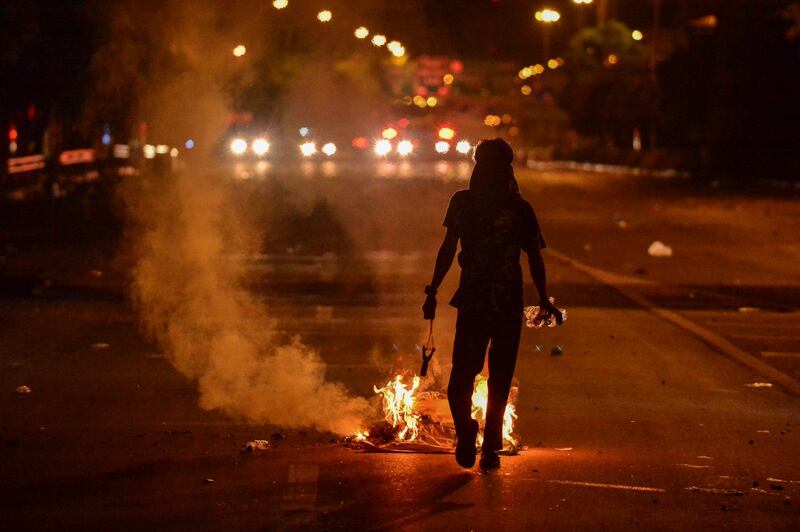Thai authorities used coercive tactics and spied on children and teen activists to dissuade them from participating in anti-government protests in 2020-22, human rights watchdog group Amnesty International said in a report released Wednesday.
In addition, the Thai government has charged nearly 300 people under age 18 on suspicion of violating the country’s harsh laws against sedition and royal defamation in connection with the massive protests, which called for reforming the constitution and the monarchy.
Starting around July 2020 young Thais – mostly university students – took to the streets to call for the ouster of a government filled with key figures from a 2014 military coup, as well as reforms to laws that shield Thailand’s powerful monarchy, among other demands.
Through these years of anti-government protests, the authorities tried to staunch the movement by using covert tactics on children and teenagers, according to the report that Amnesty released during a press conference at the Bangkok Art and Culture Center.
“Amnesty International found that the authorities used tactics of intimidation and surveillance to create fear and other chilling effects among child protesters in order to discourage them from participating in protests,” the report said.
Between January 2021 and 10 November 2022, at least 59 pro-democracy child protesters were subject to tactics of “harassment,” Amnesty said, citing figures from Thai Lawyers for Human Rights (TLHR), an NGO whose attorneys have helped defend many anti-government activists arrested in recent years.
“Authorities often decided to intimidate them with verbal threats that they would take legal actions if they participated in a protest. At times, they put child protesters under surveillance, if they are involved in protests and other actions or actively express their opinions online,” the report said.
Chompoo, a Bangkok-based 13-year-old child protester, told Amnesty International that authorities had followed her around since she started her activism in March 2022.
“Around three to four plainclothes officers would regularly come to my house and sit around the area to monitor my activities,” she said.
“I once directly approached them to talk to them. They told me they came from Taling Chan Police Station,” she added.
Chompoo, who said she was initially scared, has now decided to hide her fears behind humor.
“[N]ow I feel like a celebrity who has many followers.”
‘Severe repercussions’
Amnesty’s report says that according to TLHR, until the end of 2022, at least 283 people under 18 were prosecuted, largely for allegedly violating an emergency decree that was issued to deal with the COVID-19 pandemic.
Of them, 17 were charged with royal defamation and three were found guilty but spared from serving their prison terms because they were underage, according to information from the lawyers’ group, adding no children are currently in jail awaiting trial.

Meanwhile on Wednesday, a government spokesman declined to comment to BenarNews about Amnesty’s report, saying he had not seen it.
Some teenagers, largely secondary school students under 18, are "at risk of years in prison after being accused of sedition or insulting the monarchy, the first time that Lèse-Majesté cases were known to have been brought against children in Thailand," said an Amnesty statement accompanying the report titled " We are Reclaiming Our Future."
Lèse-Majesté, the name for the law against royal defamation, carries a prison term of up to 15 years. It was contentiously enforced after Prime Minister Prayuth Chan-o-cha threatened in November 2020 to exercise "all pertaining laws" to stop the youth-led protests which sometimes turned violent.
“Children with their whole lives ahead of them now face severe repercussions merely for participating in peaceful protests,” Chanatip Tatiyakaroonwong, Amnesty International’s Thailand researcher, said in the statement.
“Thailand has a legal obligation to guarantee children’s right to freedom of peaceful assembly, but instead, exercising that right has come at a steep cost for protesters, who are potentially facing decades behind bars.”

